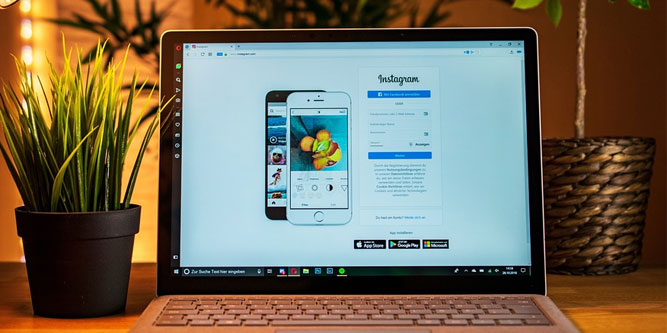You put a lot of effort into your Instagram photos. Getting the right lighting and camera settings and perfectly capturing your subject isn’t easy. But when you post those photos, are you putting them in the public domain and losing money?
You retain the copyright to all photos you post to Instagram. In order to use those photos, a person is required to ask for your permission. That said, there are exceptions for embedded photos, as well as for fair use.
Are My Instagram Photos Copyrighted?
Yes, at least in the US. Under US law, you immediately own the copyright to a photograph the moment the picture is taken. The only exceptions are where the photo is commissioned by another person or it’s taken of an existing work of art. In fact, posting the picture on Instagram can help you prove that you took it. If you were the first person to post the picture, that’s strong evidence that you took it!
That said, you have to be careful about online platforms. If their terms of use state that they own anything you post, then you could give up ownership. Thankfully, that’s not an issue with Instagram. According to their Terms of Use, “Instagram does not claim ownership of any Content that you post on or through the Service.” So far, so good.
![]()
What Can Instagram Do With My Photos?
While you still own your Instagram photos, Instagram does have some limited rights to use them. According to their Terms of service, “you hereby grant to us a non-exclusive, royalty-free, transferable, sub-licensable, worldwide license to host, use, distribute, modify, run, copy, publicly perform or display, translate, and create derivative works of your content (consistent with your privacy and application settings).”
That’s a lot to sort through. Basically, Instagram can use your photos in their own promotions, give them away, or sell them. They can also modify your content. So, for example, they could cut it into a collage for an Instagram ad. When you post something on Instagram, you’re legally bound by these terms.
That said, this has to be “consistent with your privacy and application settings.” So if you set your page to private, Instagram can only share your content with your followers.
If you decide you don’t like this, you can delete photos you don’t want Instagram to share. Alternatively, you can delete your entire Instagram account. After 30 days, the account will be permanently gone. But if Instagram had already sold or given away your pictures, your content may already be out in the wild. Third parties own it, and are free to sell or give it away in turn.
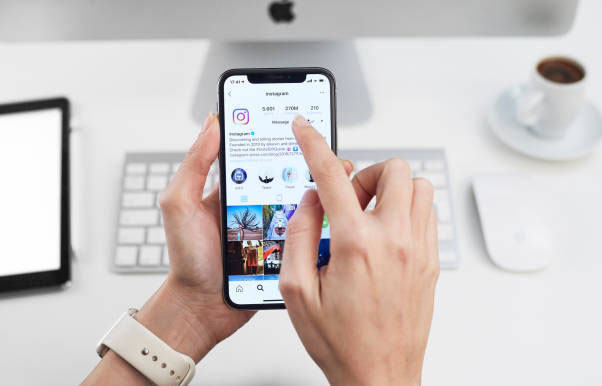
What Can Other Instagram Users Do With My Photos?
Instagram’s Terms of Service only apply to you and Instagram. Other Instagram users have no special right to use your images. This includes reposting them on Instagram, which is only legal if they get your permission first. Note that this permission doesn’t have to be specific to them. If you make a post that says “Like and share!” you’ve given everyone general permission to share it.
Along the same lines, companies and influencers will sometimes list a hashtag to be featured on their account. If you make a post with that hashtag, you’re giving that person permission to repost your picture. That said, it’s still common courtesy on their part to let you know before reposting.
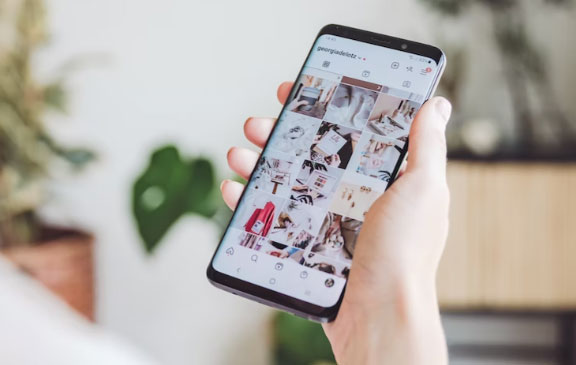
Can I Repost Other People’s Photos?
Yes, but you have to follow the rules we outlined above. Before reposting somebody’s photos, the best route is to get permission first. If not, it’s common courtesy to “@” them or use their hashtag.
If you can’t do either of those things, it’s a good idea to use an Instagram reposting app. Many of these apps have an automated tool that can apply a watermark to reposted images. So if you repost a picture from “@MashedPotatoes10000”, the picture will show that username in one of the corners.
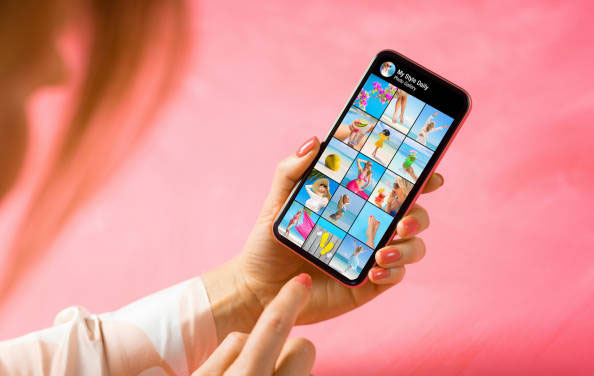
What Can I Do if Someone Else Uses My Photo?
It depends. When someone reposts your photo without permission, it’s always copyright infringement. This is true whether or not they gave you credit. That said, it’s common Instagram courtesy to let this slide when someone is promoting your work. Why wouldn’t you? They’re shouting you out and giving you free exposure. If anything, you should be thanking them!
That said, there are times when you might not want someone reposting your work. Maybe they’re criticizing it or making fun of you. Or maybe it’s someone you’d rather not have associated with your brand. Suppose a controversial politician or convicted mobster is reposting your content. How do you make them stop?
First, ask them nicely to take the content down. The same goes for anyone who shares your content without crediting you. It’s best to ask for a credit first before taking any real action. If the person still won’t take down your content or give you credit, it’s time to file a claim. You can use this form to report copyright infringement to Instagram.
Keep in mind that this protection only applies to copyright infringement on the Instagram platform. If someone is copying your pictures and selling them on another site, you’ll have to deal with that site. There’s nothing Instagram can do to help you.
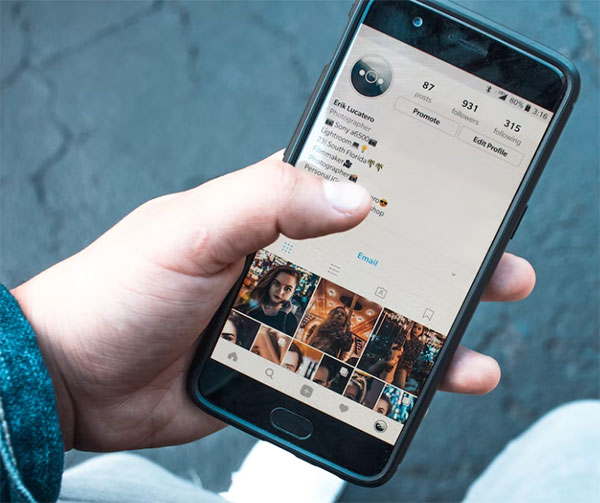
What About Embedded Images?
Embedded images are a special case. Instagram’s Terms of Use specifically allow other users to embed images on other sites.
This is different from outright reposting for a couple of reasons. For one thing, it ensures that creators always get credit. Your Instagram handle is right there in the embedded frame. For another thing, there’s no chance of your image being attributed to anyone else. If someone clicks on the picture, they’ll get sent straight to your Instagram page.
What Is Fair Use?
Fair use is a special use case under US law that allows for some limited usage of copyrighted material. This material has to be “transformative,” which means that it can’t be essentially the same as the original work. This covers criticism, commentary, and parodies, as well as educational usage.

Let’s say you post a vacation photo. Someone can’t just re-use that photo. Even if they negativize it and apply a swirl effect, it’s still fundamentally your picture. But let’s say that in the background of your photo, there’s a rare endangered species of lizard. A professor could use that image in class and it would be considered fair use.
Along the same lines, parody is also covered. Weird Al Yankovic has made a career out of playing other people’s music with silly lyrics instead of the originals. Because that’s parody, it’s fair use. If you were to write an “original” song with someone else’s music, it wouldn’t be fair use. It would be copyright infringement.
What About Copyrighted Music?
Now that Instagram is allowing video posts as well as images, you also need to think about music. If you’re using copyrighted music – even in the background – you could be infringing someone’s copyright.
Thankfully, Instagram has a robust sound collection with tons of free audio. Everything in their library is copyright-free, so you don’t have to worry. Not only that, but Instagram specifically boosts Reels that use audio from their collection, so it’s a win-win.
If you’re looking for other sources of audio, be careful. There are a few free sources like Hook Sounds, Bensound, and Audio Jungle that offer royalty-free tracks. Even then, you’ll typically be required to give credit to the copyright owner in the captions.
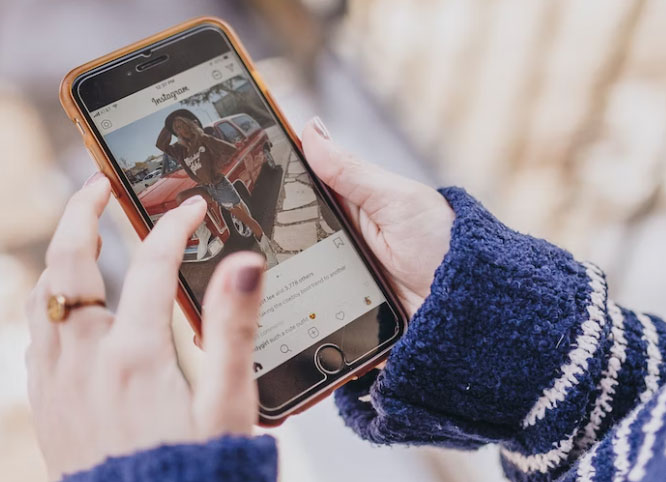
How to Protect Your Copyright on Instagram
If you want stronger copyright protection for your Instagram photos, there are a few ways to go about it. Here are some tips you can use:
- Put a copyright symbol or watermark on your images. This makes it impossible for people to share your pictures without giving you credit.
- Only post low-resolution pictures. This isn’t always ideal, particularly if you’re trying to show off your work. But if you’re selling prints, keep your highest-resolution digital images off the web.
- Put a contact link in your bio to make it easy for people to contact you. The easier you are to reach, the more people are likely to ask for your permission to begin with.
- Make your account private. This will limit its reach to your existing followers, which could be problematic depending on your purposes. But it will prevent your images from being embedded, and it will keep Instagram from using them in promotions.
Conclusion
When you post a picture on Instagram, you retain the copyright to that image. While Instagram has the right to use it for limited purposes, other people don’t get that same right. Similarly, while the image can always be embedded in another site, you’ll always get credit when that happens.
Dealing with copyright infringement is another matter. If someone has re-shared your picture on Instagram, getting it taken down is pretty simple. If it’s been posted on another platform, getting it deleted can be more challenging. Either way, you haven’t given up your copyright.
Meet Ry, “TechGuru,” a 36-year-old technology enthusiast with a deep passion for tech innovations. With extensive experience, he specializes in gaming hardware and software, and has expertise in gadgets, custom PCs, and audio.
Besides writing about tech and reviewing new products, he enjoys traveling, hiking, and photography. Committed to keeping up with the latest industry trends, he aims to guide readers in making informed tech decisions.

